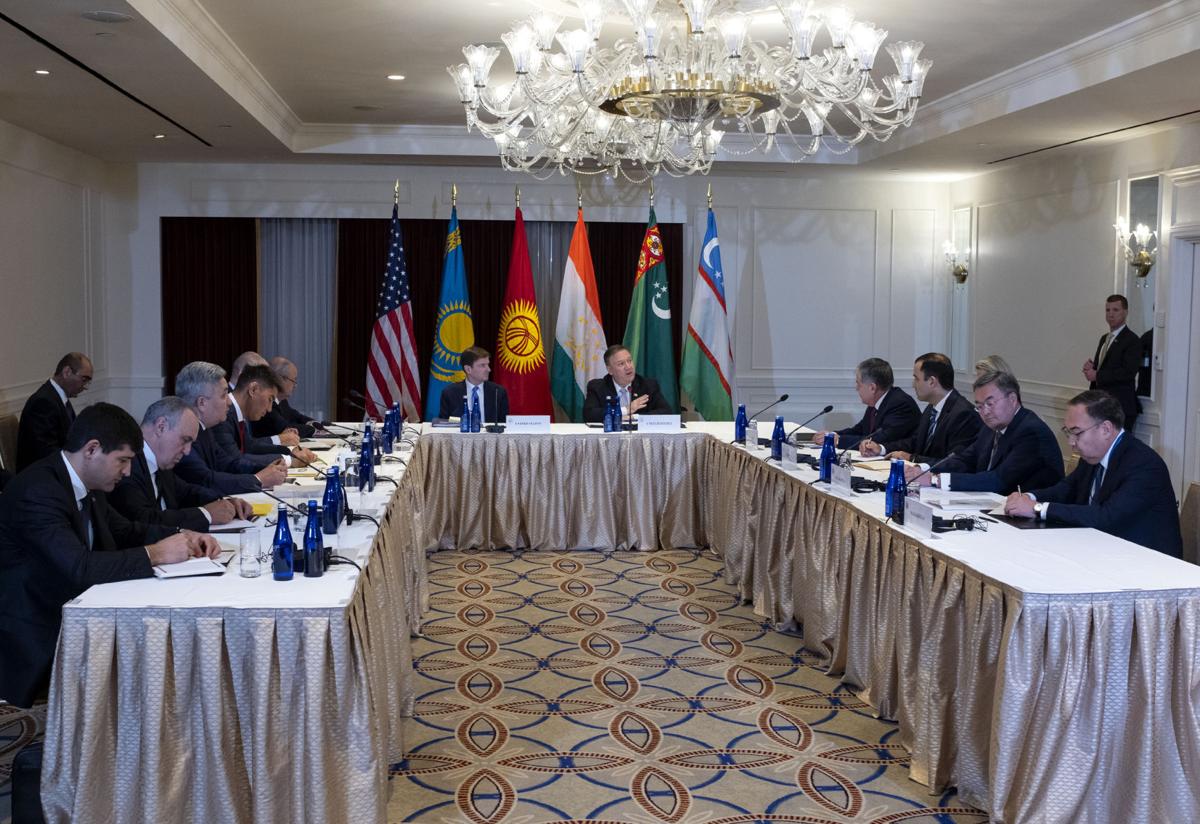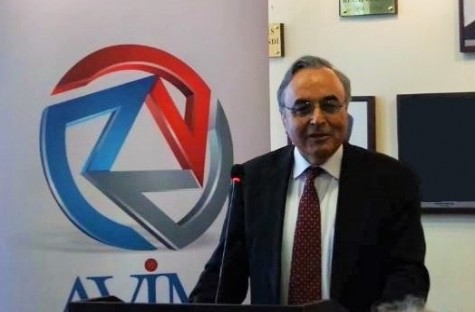The G-20 Summit was held in New Delhi on September 9-10, 2023. The Summit was organized within the framework “One World, One Family, One Future.” The Summit addressed important issues such as food security, climate change and energy, development, health and digitalization. Although the G-20 is considered to be an important summit where twenty of the world’s leading economies are represented, there have been some articles written in the West with reservations concerning this notion. One such article was written by John R. Bolton, who served as an advisor to former United States of America (US) President Donald Trump, arguing that the G-20 should “abolish” itself.
The G-20, as it is known, was established in 1999 following the meeting of Finance Ministers and Central Bank Governors in the wake of the Asian financial crisis in 1997 and the Russian financial crisis in 1998, with the aim of increasing the representation of the major developed countries and emerging economies, which are growing in importance and influence within the international system, in global economic decision-making processes and to provide a more stable structure to the international financial system. It is a platform composed of Türkiye, the US, Germany, Argentina, Australia, the United Kingdom (UK), Brazil, the People’s Republic of China (PRC), Indonesia, France, the Republic of South Africa, India, Italy, Japan, Canada, the Republic of Korea, Mexico, the Russian Federation, Saudi Arabia and the European Union (EU)[1].
This year, the joint statement agreed upon by the G-20 countries highlights a number of issues. For example, the African Union, which has 55 members, will be a permanent member of the G-20 which shares the status of the EU. The inclusion of the African Union in the G-20, which also includes South Africa, will allow the “global south” to better assert itself within the group[2]. Another development that marked the G-20 summit was the launch of the India-Middle East-Europe-Corridor (IMEC) Project. According to this project, India will be connected to the Gulf via Saudi Arabia and the United Arab Emirates (UAE) and to Europe via the Gulf. The US, India, Saudi Arabia, UAE, Germany, France, Italy, and the EU have come together for this purpose. For Washington, this project represents an alternative to China’s infrastructure investments under the Belt and Road Initiative. With this project, the US has targeted China’s Belt and Road Project on the one hand, while pursuing its interests in the Middle East on the other. The project envisages the economic and commercial integration of India with Saudi Arabia, the UAE, Israel and Jordan, in short, the Middle East region. In other words, it aims to achieve geopolitical and economic “convergence” of South Asia with the Middle East and West Asia.
The G-20 summit also addressed issues that have so far been unsuccessful. One of the main areas of failure is the issue of climate change. The United Nations (UN) announced the day before the summit began that a complete phase-out of fossil fuels was key to zero emission goals, but the G-20 leaders failed to reach an agreement on the issue. It is worth adding that G-20 countries are responsible for 80 percent of global emissions.
The article written by John R. Bolton, who served as an advisor under former US President Donald Trump, begins with the statements that the G-20 should abolish itself and that the “pile” of final declarations, joint declarations and outcome documents have no results[3]. The article points out that the G-20 enables quick diplomatic talks, but so do many other forums, notably the upcoming UN General Assembly in New York. Bolton asks whether there are any measurable benefits to short meetings with no end in sight. Bolton also emphasized the absence of Chinese President Xi JinPing at the Summit. Apparently, Bolton is uncomfortable with the coming collaboration of East and West. However, the rare occurrence of summits where East and West come together will increase polarization. The West will then lose even more opportunities to seek balance. Otherwise, if both the East and the West hold their own “private” summits, the problems will only increase. At this point, a sentence at the end of Bolton’s article is noteworthy. “Eliminating G-20 meetings would free up the leaders’ time to focus on real issues, not diplomatic niceties.” The removal of one of the traditional summits could turn into a major obstacle to focusing on real issues.
The relative decline of Western dominance in the G-20 is a clear fact. The countries of the “South,” which make up almost the majority of the G-20, have become more influential. This situation has begun to run counter to the interests of America, which led the formation of the G-20. This is why John Bolton’s article is not surprising. The G-20 is no longer an institution that can fulfill US expectations. The most important indicator of this is that Russia was openly blamed for the war in Ukraine at last year’s G-20 summit in Bali. At this year’s G-20 Summit in New Delhi, Russia was not mentioned. This presented an outcome that the US and the West do not like to see. But alienating India is not something they would prefer either. Bolton’s idea of abolishing the G-20 runs counter to the interests of the US and the West. If the G-20 disappears, only the G-7 and BRICS will remain. This would lead to the possibility of a BRICS completely controlled by China and Russia, which could rival the G-7.
*Photograph: https://www.indyturk.com/node/660331/dünya/yeni-delhideki-g20-zirvesinden-çıkan-5-sonuç
© 2009-2025 Center for Eurasian Studies (AVİM) All Rights Reserved

 THE NEVER-ENDING INCONSISTENCIES OF MACRON
THE NEVER-ENDING INCONSISTENCIES OF MACRON
 BOOK INTRODUCTION: İSTİKLALE AÇILAN İLK KAPI: BİTLİS (İŞGALİ VE KURTULUŞU) – MEHMET TÖREHAN SERDAR
BOOK INTRODUCTION: İSTİKLALE AÇILAN İLK KAPI: BİTLİS (İŞGALİ VE KURTULUŞU) – MEHMET TÖREHAN SERDAR
 ARMENIAN CLAIMERS' EFFORTS TO HIDE BEHIND THE HOLOCAUST
ARMENIAN CLAIMERS' EFFORTS TO HIDE BEHIND THE HOLOCAUST
 BREXIT PROCEEDS BUT UNITED KINGDOM IS HESITANT ABOUT BREXIT
BREXIT PROCEEDS BUT UNITED KINGDOM IS HESITANT ABOUT BREXIT
 THE END JUSTIFY THE MEANS FOR WEBER
THE END JUSTIFY THE MEANS FOR WEBER
 DONALD TUSK’S VISIT TO SOUTH CAUCASUS
DONALD TUSK’S VISIT TO SOUTH CAUCASUS
 PASHINYAN'S STATEMENTS REGARDING 'WESTERN ARMENIA' AND PUBLIC OPINION REALITIES
PASHINYAN'S STATEMENTS REGARDING 'WESTERN ARMENIA' AND PUBLIC OPINION REALITIES
 CENTRAL ASIAN COUNTRIES SHOULD OPEN UP TO THE WORLD
CENTRAL ASIAN COUNTRIES SHOULD OPEN UP TO THE WORLD
 RUSSIA AND CHINA CARRY OUT JOINT NAVAL EXERCISE IN EASTERN MEDITERRANEAN
RUSSIA AND CHINA CARRY OUT JOINT NAVAL EXERCISE IN EASTERN MEDITERRANEAN




























